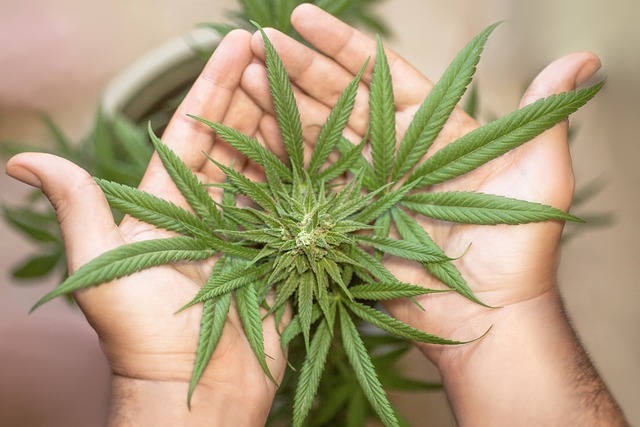2023 has seen significant progress in the legal recognition of THCA (tetrahydrocannabinolic acid) as a non-psychoactive compound with potential therapeutic benefits in Georgia. With the passing of the 2018 Farm Bill and the Georgia Industrial Hemp Act, hemp-derived products including THCA flower became legal provided they contain less than 0.3% delta-9-THC. This legislative shift has clarified the legality of THCA in Georgia, allowing for its purchase, possession, and use within state guidelines. The Georgia Hope Act of 2015 also facilitated access to low-THC cannabis oil for certain medical conditions, reflecting the state's evolving approach to cannabis policies. As research advances, THCA is being explored for its anti-inflammatory, neuroprotective, and analgesic properties, offering a potential alternative to traditional treatments without psychoactive effects. The scientific community continues to study THCA's interaction with the endocannabinoid system, aiming to harness its medicinal potential for various health conditions. This development marks a forward-thinking move by Georgia in embracing the therapeutic possibilities of cannabinoids like THCA.
Exploring the nuanced effects of THCA flower, this article delves into its burgeoning presence within the legal framework of Georgia. As interest in alternative wellness options grows, THCA—a non-psychoactive cannabinoid found in hemp and marijuana plants—has garnered attention for its potential therapeutic properties. This piece dissects the composition and benefits of THCA flower, while providing a comprehensive overview of its side effects as experienced by users. With an emphasis on understanding the science behind its interaction with the human body and the legal status of THCA flower in Georgia, readers will gain insight into safe consumption practices and common reported side effects. We explore how terpenes influence its effects, the differences in side effects compared to THC or CBD, and the importance of strain selection for managing potential adverse reactions. This article serves as a guide for those navigating the complex regulatory environment surrounding THCA flower, ensuring informed decision-making within the bounds of Georgia’s laws.
- Understanding THCA Flower and Its Legal Status in Georgia
- The Emergence of THCA as a Cannabinoid of Interest
Understanding THCA Flower and Its Legal Status in Georgia

Cannabidiolic acid (THCA) is a non-psychoactive compound found in the cannabis plant that has garnered attention for its potential therapeutic properties. As research continues to evolve, THCA is being recognized for its benefits without the psychoactive effects associated with its decarboxylated form, THC. In Georgia, the legal status of THCA flower has been a subject of ongoing discussion and legislative changes. Historically, cannabis in all forms was strictly prohibited under Georgia law. However, with the passage of the Georgia Hope Act in 2015, low-THC cannabis oil was made legally available for patients diagnosed with specific conditions like epilepsy. This marked a shift towards more progressive cannabis policies within the state.
As of my knowledge cutoff in early 2023, Georgia’s laws have further evolved to include the legalization of hemp and hemp-derived products, including THCA flower, as long as they contain less than 0.3% delta-9-THC on a dry weight basis, according to the 2018 Farm Bill and the Georgia Industrial Hemp Act. This legislative change has clarified the legal status of THCA flower in Georgia, allowing for its sale, possession, and use within the confines of the law. It’s important for consumers to stay informed about the specific regulations and limitations that govern the use and possession of THCA products in Georgia, as laws can change over time. Consumers interested in THCA flower should ensure they are complying with state and local laws to avoid legal complications.
The Emergence of THCA as a Cannabinoid of Interest

The non-psychoactive cannabinoid THCA, or tetrahydrocannabinolic acid, has garnered significant attention within the medical and wellness communities for its potential therapeutic properties. Unlike its better-known counterpart THC, THCA is legal in Georgia under certain conditions, making it an intriguing subject of research and exploration. Initial studies suggest that THCA may offer a range of benefits, including anti-inflammatory, neuroprotective, and potential analgesic effects without the psychoactive side effects associated with THC. As such, THCA is being examined for its role in treating various conditions, from chronic pain to neurodegenerative diseases. The emergence of THCA as a cannabinoid of interest is not only due to its promising health benefits but also because it aligns with the evolving legal landscape surrounding cannabis and its derivatives. In Georgia, where legislation has been adaptive to the acceptance of cannabis for medicinal purposes, THCA’s legal status reflects a cautious yet progressive approach to embracing the potential of cannabinoids in healthcare. Researchers are actively studying THCA flower and its side effects to understand its full spectrum of impact on human health, with a particular focus on how it interacts with the body’s endocannabinoid system. This exploration is critical in determining the therapeutic use of THCA, potentially paving the way for new medicinal applications that could benefit patients across various demographics.
In conclusion, the exploration into THCA flower’s effects and its legal standing in Georgia has shed light on this emerging cannabinoid. As discussed, THCA possesses unique properties distinct from its decarboxylated form, THC, which users may consider for various wellness applications. The legal landscape for THCA in Georgia is evolving, with clear regulations defining its use and sale within the state. It’s advisable for consumers to stay informed on local laws and consult healthcare professionals when incorporating THCA flower into their routines. As research continues to unfold, the potential benefits and side effects of THCA will become more apparent, guiding its responsible use in the wellness sphere.
